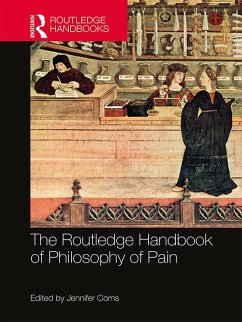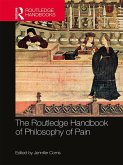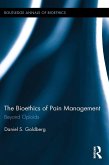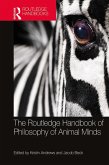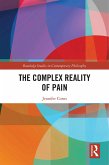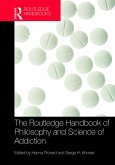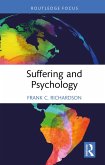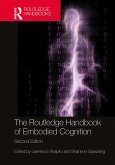The Routledge Handbook of Philosophy of Pain is an outstanding reference source to the key topics, problems, and debates in this exciting and interdisciplinary subject and is the first collection of its kind. Comprising over thirty chapters by a team of international contributors the Handbook is divided into nine clear parts:
- Modeling pain in philosophy
- Modeling pain in neuroscience
- Modeling pain in psychology
- Pain in philosophy of mind
- Pain in epistemology
- Pain in philosophy of religion
- Pain in ethics
- Pain in medicine
- Pain in law
As well as fundamental topics in the philosophy of pain such as the nature, role, and value of pain, many other important topics are covered including the neurological pathways involved in pain processing; biopsychosocial and cognitive-behavioural models of pain; chronic pain; pain and non-human animals; pain and knowledge; controlled substances for pain; pain and placebo effects; and pain and physician-assisted suicide.
The Routledge Handbook of Philosophy of Pain is essential reading for students and researchers in philosophy of mind, philosophy of psychology and ethics. It will also be very useful to researchers of pain from any field, especially those in psychology, medicine, and health studies.
Dieser Download kann aus rechtlichen Gründen nur mit Rechnungsadresse in A, B, BG, CY, CZ, D, DK, EW, E, FIN, F, GR, HR, H, IRL, I, LT, L, LR, M, NL, PL, P, R, S, SLO, SK ausgeliefert werden.
"This Handbook demonstrates how far the study of pain has developed in recent years. It presents an excellent overview of advances and current controversies about the nature of pain, in philosophy, neuroscience, and psychology, followed by chapters that exemplify pain's relevance for both theoretical and practical inquiries. It will be invaluable for researchers and students in these different disciplines." - Barry Maund, The University of Western Australia
"This collection of philosophical essays from interdisciplinary experts confirms that the revolution in pain science and medicine has finally reached philosophy. The era of pain as a paradigm simply of sensation is ending. In these chapters, we see the emerging contours of an accelerating renaissance in philosophical thinking about pain." - Adam Swenson, California State University, Northridge, USA
"This collection presents a broad overview on the discourse on pain, and reveals how philosophy, particularly through analytic accounts, can bring clarity to the ambiguous experience. Clearly introduced and meticulously laid out, the Routledge Handbook provides an essential roadmap to philosophy's multidisciplinary engagements with pain." - Anna Westin, PhD, Lecturer in Ethics, London School of Theology
"This Handbook demonstrates how far the study of pain has developed in recent years. It presents an excellent overview of advances and current controversies about the nature of pain, in philosophy, neuroscience, and psychology, followed by chapters that exemplify pain's relevance for both theoretical and practical inquiries. It will be invaluable for researchers and students in these different disciplines." - Barry Maund, The University of Western Australia
"This collection of philosophical essays from interdisciplinary experts confirms that the revolution in pain science and medicine has finally reached philosophy. The era of pain as a paradigm simply of sensation is ending. In these chapters, we see the emerging contours of an accelerating renaissance in philosophical thinking about pain." - Adam Swenson, California State University, Northridge, USA

